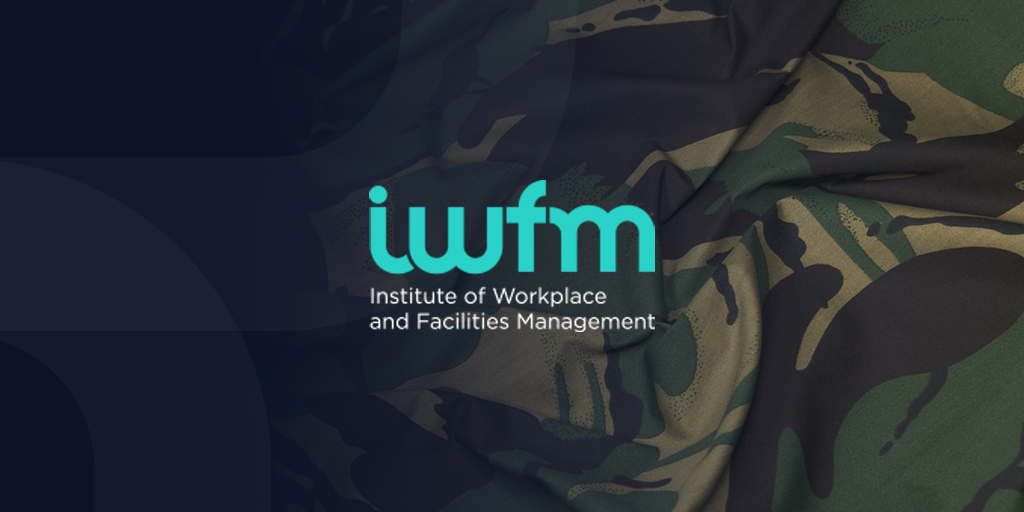“Your military training is an asset when it comes to implementing and managing innovative solutions”
News
- Professional Performance
18 February 2025

In 2023 we launched the Veterans in FM Network, a dedicated career route for veterans to network and support each other in their workplace and facilities management (WFM) careers. Click here to discover how veterans can find pathways to success in WFM. Veterans possess an array of skills, experiences and ambitions, so we’re keen to highlight individuals from this rich talent pool to better understand their different WFM paths.
One such individual is Richard Jones, Operations Director (Defence) of Sodexo Government, who served in the Royal Artillery for over 22 years before transitioning to WFM. Richard describes how veterans can translate military experience to WFM skills, the importance of continuous learning and being adaptable in a dynamic sector.
How did you prepare for your transition into WFM and could you explain your early experiences?
My resettlement journey started with a basic WFM course provided as part of the military resettlement process. Recognising the value of continuous learning, I then pursued short courses through the British Institute of Facilities Management (BIFM) - now IWFM - focusing on finance, contract management, strategic WFM perspectives and PRINCE2 project management.
My first civilian role was with VT Flagship as an Estate Facilities Manager at HMS Sultan and HMS Collingwood, where I was responsible for delivering total WFM services. In 2011, I joined Sodexo as the Account Manager for Central Government contracts in the Southwest and Central London. Following that, I took on a global role improving Sodexo’s mobilisation processes across Asia Pacific and Central Europe.
Eventually, I returned to operational roles, becoming Contract Director for the Wales to Midlands Multi Activity Contract within Defence, with additional responsibilities for the Falkland Islands. In 2021, I was appointed Operations Director for Sodexo Defence, overseeing facilities and support services for the southern region of the UK military, Portsmouth Naval Base, and the Falkland Islands.
What's critical for veterans to understand about leveraging their military skills in a sector like WFM?
The most critical thing is translating your military experience into civilian language. Veterans often underestimate the value of their skills. Skills like leadership, strategic planning, risk management and logistical coordination are highly transferable. Think about how coordinating military operations parallels project management tasks in WFM, or how leading a platoon is like managing a team. Tailor your CV and interview responses to highlight these transferable skills, demonstrating to employers the value you bring.
Following the military, how did you adjust to the potentially less structured environment of civilian workplaces?
Flexibility and adaptability are key. Embrace the more relaxed, and often ambiguous, civilian work culture. Be proactive in seeking guidance and less reliant on hierarchical direction. Developing soft skills like communication and negotiation becomes essential for navigating these dynamics. Don't expect things to be laid out as clearly as in the military - you need to be resourceful and build relationships to get things done.
What advice would you give veterans trying to establish themselves in WFM?
Actively engage in networking opportunities. Attend relevant events, join professional associations and connect through platforms like LinkedIn. Building relationships can provide mentorship, support and career openings. It also offers insights into sector-specific best practices and trends. Don't be afraid to reach out and introduce yourself to people. Your military background is often a conversation starter.
Finally, military training instils discipline and attention to detail. How can veterans balance these qualities with the need for innovation and creativity in WFM?
Balance discipline with flexibility, maintaining high standards and meticulous attention to detail. Foster a mindset open to innovation and creative thinking. Encourage team input and experiment with new methods to improve efficiency and effectiveness in WFM operations. Be willing to challenge the status quo but do so in a constructive and well-reasoned way. Your military training can be a real asset when it comes to implementing and managing innovative solutions.
To find out more about Veterans In FM’s work, click here or visit us on LinkedIn.
